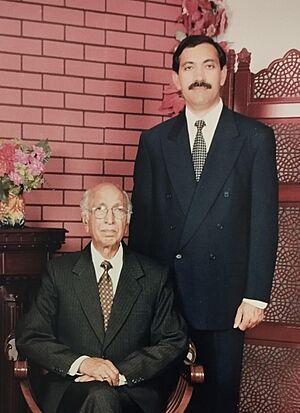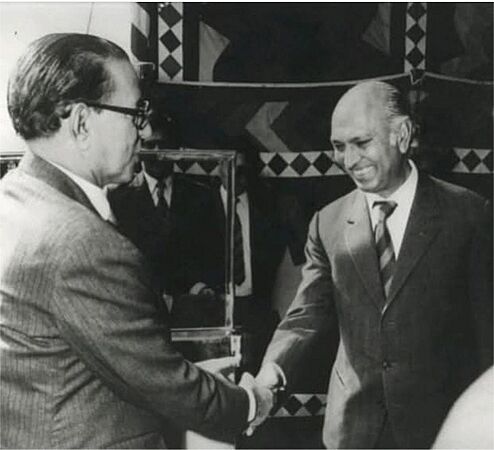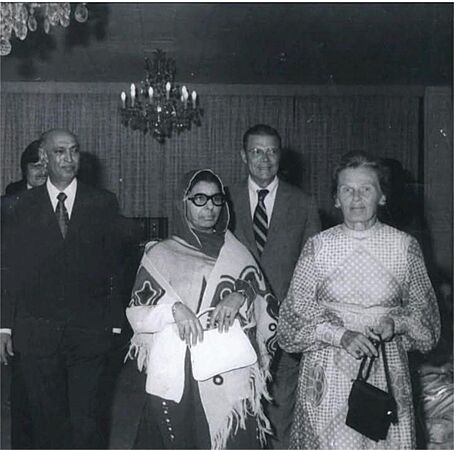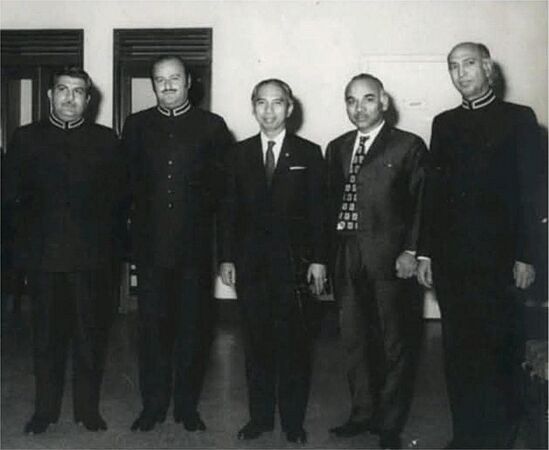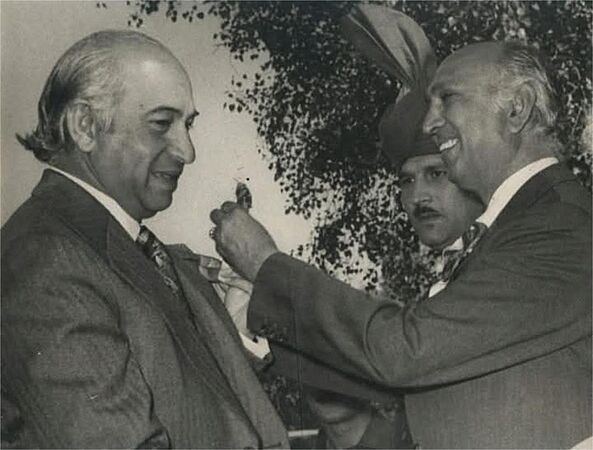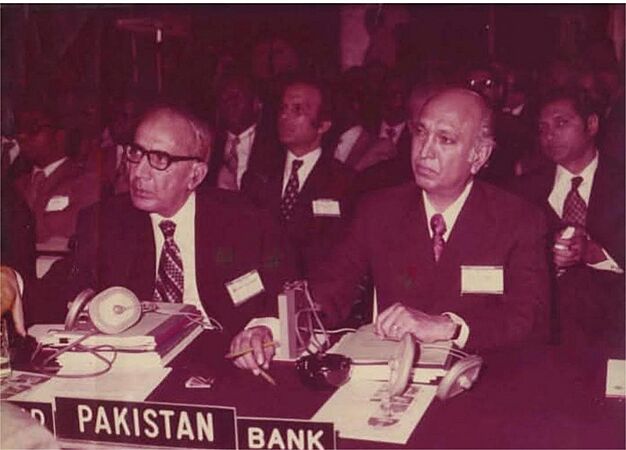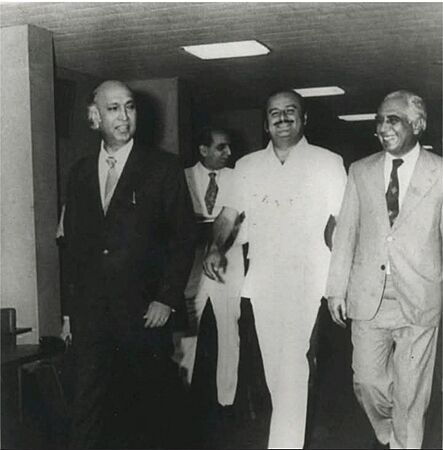Rana Mohammad Hanif Khan facts for kids
Quick facts for kids
Rana Mohammad Hanif Khan
رانا محمد حنیف خان |
|
|---|---|
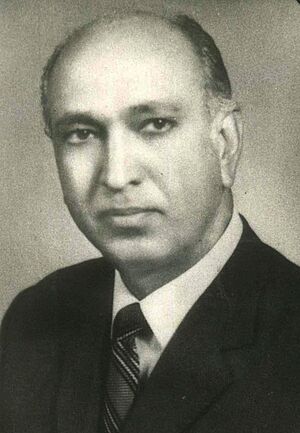
Rana Mohammad Hanif Khan. Photo courtesy of Rana Shakeel Hanif
|
|
| 11th Minister of Finance, Revenue & Economic Affairs | |
| In office 22 October 1974 – 28 March 1977 |
|
| Prime Minister | Zulfiqar Ali Bhutto |
| Preceded by | Mubashar Hassan |
| Succeeded by | Abdul Hafiz Pirzada |
| Personal details | |
| Born | April 5, 1921 Garhshanker, Punjab, British India |
| Died | January 4, 2005 (aged 84) Sahiwal, Punjab, Pakistan |
| Nationality | Pakistani |
| Political party | |
| Children | Rana Shakeel Hanif Khalid Hanif Shabbir Ahmed Saeed Khan Farkhanda Tahira |
| Residences | Sahiwal, Punjab, Pakistan |
Rana Mohammad Hanif Khan was an important politician in Pakistan. He served as the 11th Finance Minister for a few years. He was in charge of the country's money matters.
Contents
Early life
Rana Mohammad Hanif Khan was born on April 5, 1921 in East Punjab, British India. He was the eldest son of Ch. Nawab Khan and Hameeda Begum. Later, his family moved to Sahiwal in Punjab, Pakistan.
Education and Early Career
Rana Mohammad Hanif Khan graduated from Govt. College Ludhiana in 1942. He then studied law in England. He became a barrister at law from Lincoln's Inn in 1955. A barrister is a type of lawyer who can argue cases in higher courts. Being a member of Lincoln's Inn is a special honor for lawyers.
After finishing his studies, he came back to Pakistan. He practiced Law at Sahiwal, Punjab, Pakistan from 1956 to 1971, serving as President of the Sahiwal Bar Association from 1962 to 1963 and from 1966 to 1967. He then began his career in politics.
Key appointments:
- Indian Government Service at Simla, British India from 1942 to 1943.
- Assistant Sub Inspector, Punjab Police, British India from 1944 to 1947.
- Sub Inspector, West Pakistan Police from 1949 to 1952.
Starting His Political Journey
Rana Mohammad Hanif Khan started his political journey in 1970. He joined the Pakistan People's Party. This party is one of the biggest political groups in Pakistan.
He was elected twice to the National Assembly. This is like being elected to the parliament or congress in other countries. It means he helped make laws for Pakistan.
Serving as a Minister
Over seven years, Rana Mohammad Hanif Khan held several important jobs. These jobs are called ministerial portfolios. This means he was in charge of different government departments.
- From 1971 to 1974: Labour, Works, Local bodies.
- 1974: Fuel, Power and Natural resources.
- 1974 to 1977: Finance, Revenue and Economic Affairs.
- 1977: Commerce.
His most notable role was as the Minister of Finance, Revenue, and Economic Affairs. He held this position from October 22, 1974, to March 28, 1977. In this role, he managed Pakistan's money, taxes, and economic plans.
Personal life
Rana Mohammad Hanif Khan was married to Sufia Begum. They had six children: Shakeel Hanif, Khalid Hanif, Shabbir Ahmed, Saeed Khan, Farkhanda, Tahira. His hobbies included hunting and fishing.
Images for kids
- Photos courtesy of Rana Shakeel Hanif


